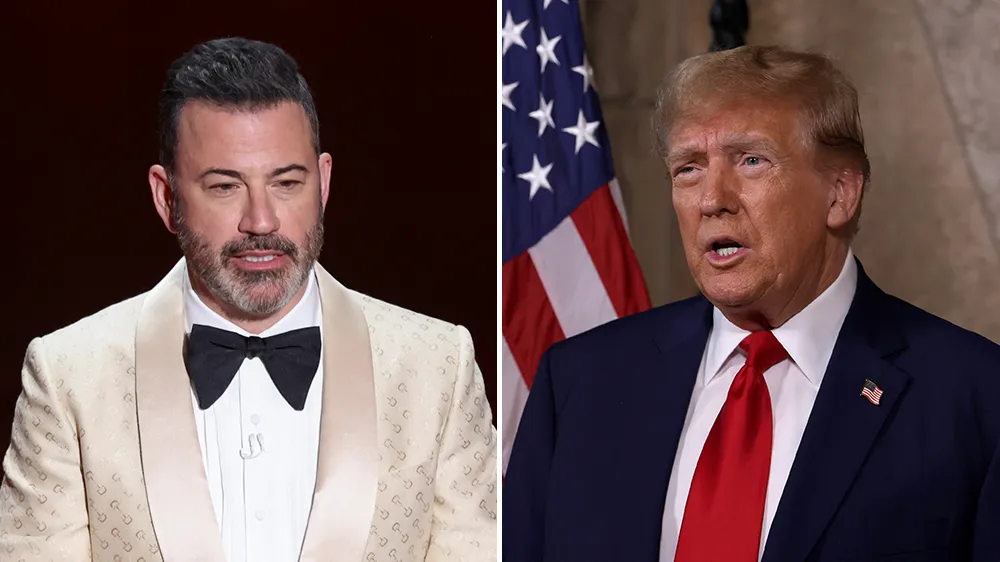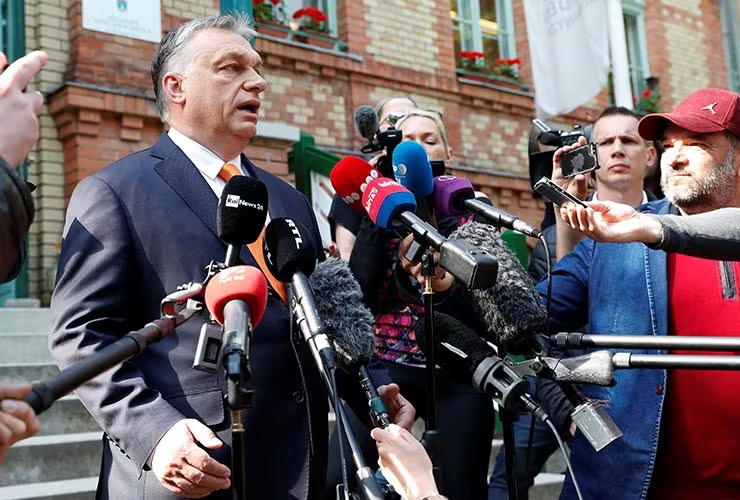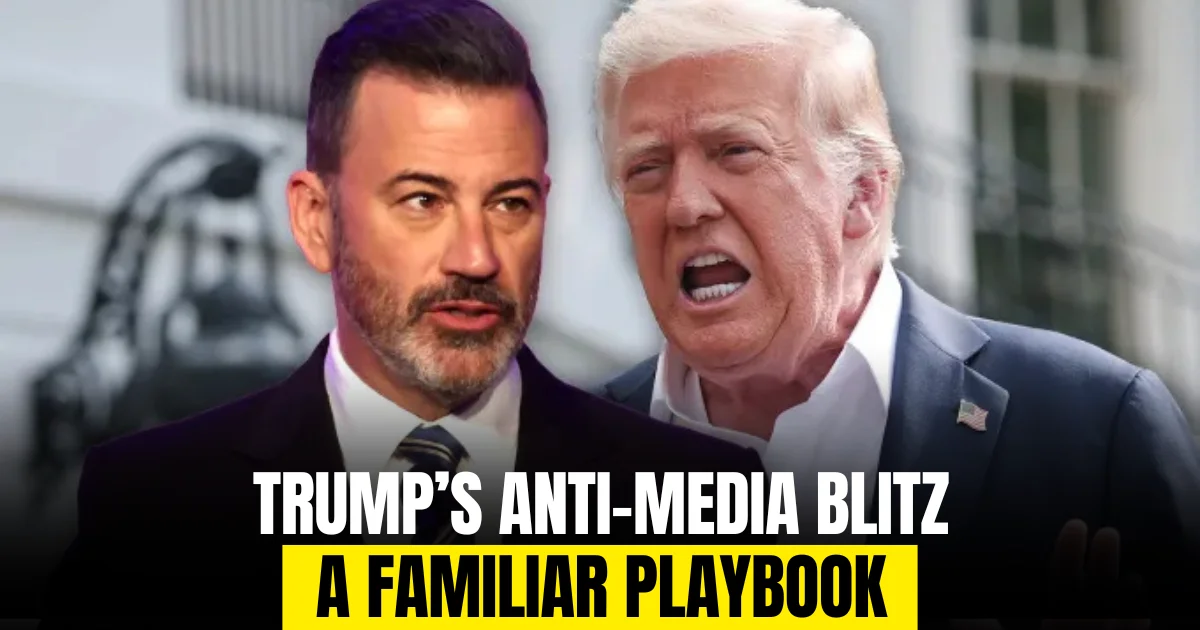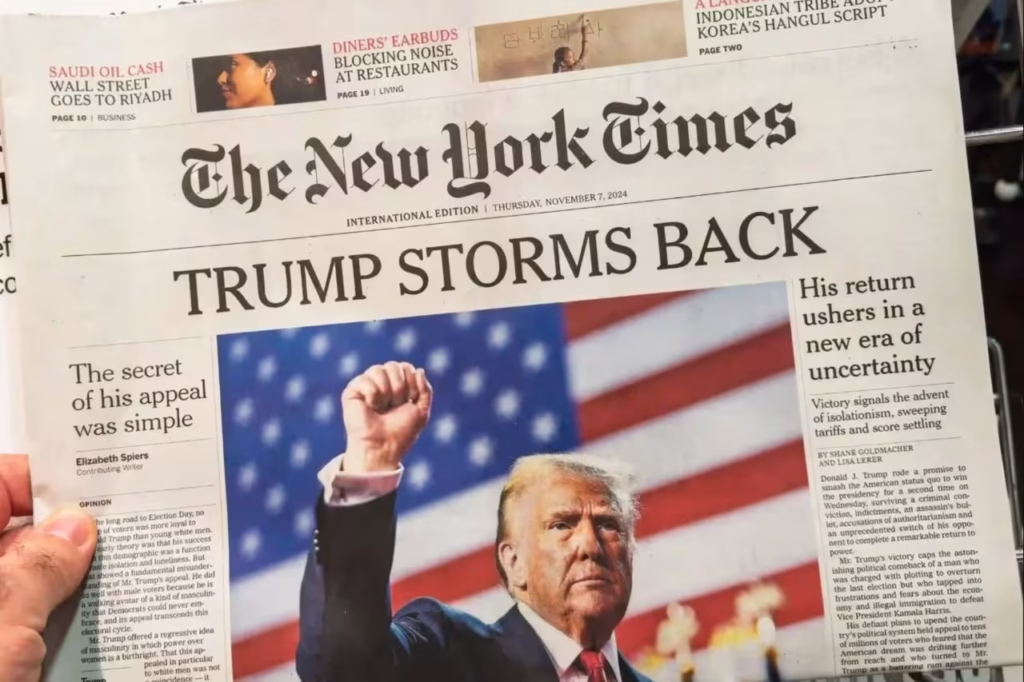Trump’s pressure on media, from Kimmel’s suspension to FCC threats, mirrors Viktor Orbán’s playbook. Here’s what it means for free speech.
Table of Contents
Introduction
The suspension of Jimmy Kimmel by Disney’s ABC, following pressure from Trump allies and regulatory threats, has sparked alarm among free speech advocates. Experts say this strategy — combining lawsuits, FCC pressure, and financial coercion — closely mirrors the tactics Hungarian Prime Minister Viktor Orbán used to consolidate control of his country’s media. As Trump’s legal and political offensives against media outlets escalate, concerns are mounting that the United States could be edging toward an Orbán-style model of “media capture.”
Trump’s Anti-Media Blitz: A Familiar Playbook

Weaponizing Government Against Media
- Trump’s allies have used lawsuits, regulatory probes, and FCC threats to pressure media companies.
- Disney and Paramount both settled Trump’s defamation suits rather than face lengthy court battles.
- FCC chair Brendan Carr has launched probes against outlets critical of Trump, breaking from past nonpartisan precedent.
This approach mirrors Orbán’s use of “financial and legal levers” to silence critical media voices in Hungary after 2010.
The ABC & Kimmel Case: A Turning Point
The decision by ABC to suspend Jimmy Kimmel, one of Trump’s most vocal late-night critics, highlights the chilling effect of this strategy.
- At least two major station owners, Nexstar and Sinclair, preemptively pulled Kimmel’s show while awaiting FCC approvals.
- This move protected their business interests but raised alarms about media independence.
- Critics argue that silencing Kimmel represents more than corporate caution — it reflects government-enabled intimidation.
Lessons from Hungary’s Media Capture

Gábor Scheiring, a former Hungarian MP and now Georgetown professor, sees strong parallels:
- Orbán weakened public broadcasters and incentivized private media owners to comply.
- Independent outlets faced financial ruin unless they fell in line.
- “Owners capitulated individually rather than resisting collectively,” enabling systematic control.
Similarly, US corporations like Disney appear to be choosing compliance over confrontation, giving Trump greater influence over what Americans see and hear.
Free Speech at Risk in the US
Groups like the ACLU have warned that this is a “grave threat to the First Amendment.” By targeting high-profile critics such as Kimmel and Colbert, Trump’s strategy raises the cost of speaking out.
David Pressman, former US ambassador to Hungary, notes: “American corporations are clinging to the illusion they can preserve independence while making deals with a strongman.”
The Hungarian phrase “Van az a pénz” — meaning “there’s always a price” — resonates here. For US media, the cost may be free speech itself.
Implications for Democracy & Media Independence
- If corporations continue to prioritize short-term profits over democratic principles, they risk enabling long-term authoritarianism.
- Regulatory and legal intimidation creates a chilling precedent for future administrations.
- The erosion of independent journalism weakens democratic accountability at a time when misinformation is already rampant.
FAQs
Q1. Why was Jimmy Kimmel suspended by ABC?
Kimmel’s suspension followed Trump administration pressure and FCC threats, with Disney choosing compliance to avoid regulatory and legal risks.
Q2. How is Trump’s media strategy similar to Viktor Orbán’s in Hungary?
Both rely on legal threats, financial coercion, and regulatory pressure to push media outlets toward self-censorship and compliance.
Q3. What role did the FCC play in the Kimmel case?
Trump’s FCC chair, Brendan Carr, threatened action against ABC and probed outlets critical of Trump, echoing Orbán’s use of media authorities.
Q4. Why are corporations like Disney settling lawsuits instead of resisting?
Settlements reduce legal costs and regulatory risks but also embolden further political pressure by showing compliance pays off.
Q5. What does this mean for US free speech?
Experts warn it signals a dangerous erosion of First Amendment protections, where criticism of political leaders may carry business and legal penalties.
Conclusion
Trump’s escalating campaign against the media — from lawsuits to FCC probes — reflects a European strongman’s strategy repurposed for US politics. The suspension of Jimmy Kimmel is not just a corporate decision; it is a test of America’s democratic resilience. If media companies continue to capitulate, the cost will be borne not just by late-night hosts but by the freedom of speech that underpins American democracy.
👉 What do you think? Should corporations stand firm against political intimidation, or are they right to protect their business interests first? Share your thoughts below.

